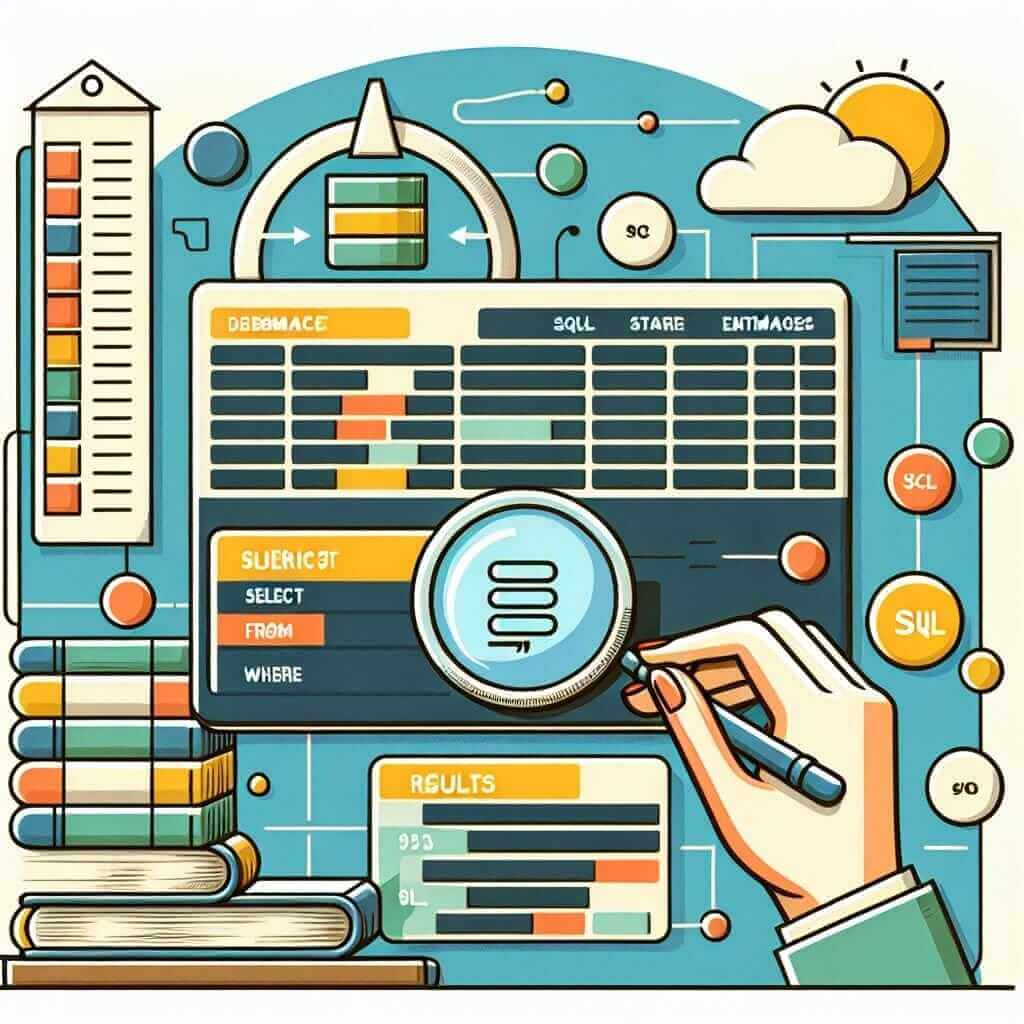SQL, or Structured Query Language, is a powerful tool used to manage and manipulate data in relational databases. While not a primary focus in the IELTS exam, understanding basic SQL concepts and vocabulary can enhance your technological fluency, which is becoming increasingly important in the modern world. This knowledge can be particularly useful in the IELTS Listening and Reading sections where you might encounter passages related to data management, software development, or technology trends.
Breaking Down SQL Vocabulary
Let’s explore some fundamental SQL terms:
-
Database: A structured collection of data, organized for efficient storage and retrieval. Think of it like a vast digital library. (Noun)
- Example: “The company stores customer information in a secure database.”
-
Query: A request for specific information from a database. Imagine it as asking the digital librarian to find a particular book. (Noun/Verb)
- Example: “The analyst ran a query to retrieve sales data for the last quarter.”
-
SELECT: A keyword used to retrieve data from a database table. It’s like asking the librarian to “select” specific books.
- Example: “The SQL command ‘SELECT name, age FROM customers’ retrieves the names and ages of all customers.”
-
FROM: Specifies the table from which data will be retrieved. It tells the librarian which shelf to look on.
- Example: “The ‘FROM’ clause in the query indicated that the data should be pulled from the ‘products’ table.”
-
WHERE: Used to filter data based on specific criteria. It’s like giving the librarian additional details to find the exact book you need.
- Example: “Adding a ‘WHERE’ clause like ‘WHERE price > 100’ will only show products that cost more than 100 dollars.”

Applying SQL Vocabulary in IELTS
1. Listening Section
Imagine listening to a lecture about data analysis techniques:
- “… and then, we use SQL queries to extract relevant information from our vast customer database. This allows us to identify trends and patterns…”
Understanding the terms “SQL queries” and “database” will help you comprehend the speaker’s message effectively.
2. Reading Section
Consider an article about e-commerce trends:
- “Online retailers rely heavily on sophisticated databases to manage their inventory, track customer orders, and personalize shopping experiences. They use SQL to analyze sales data and optimize marketing strategies.”
Recognizing the words “databases” and “SQL” in context will enable you to grasp the article’s main points.
3. Writing Section
While you might not write extensively about SQL in your essay, understanding technological vocabulary can enrich your writing. For instance, you could use the concept of a “database” metaphorically:
- “The human brain is an incredibly complex database, storing vast amounts of information and memories.”
Combining SQL Vocabulary
- “Data analysts use SQL to query databases and gain valuable insights into customer behavior.”
- “Understanding basic SQL commands can be beneficial for anyone working with large datasets.”
- “The company implemented a new database management system to improve data security and efficiency.”
SQL-Related Idioms and Expressions
- Data mining: Extracting useful information from large datasets.
- Example: “Data mining techniques are crucial for businesses seeking to understand customer preferences.”
- Data-driven decision-making: Making informed choices based on analyzed data.
- Example: “Companies are increasingly relying on data-driven decision-making to improve efficiency.”
Conclusion
While SQL might seem like a specialized area, having a basic understanding of its key terms can be advantageous in the IELTS exam. It showcases your grasp of technology-related vocabulary and demonstrates your ability to navigate a world increasingly driven by data. Remember to practice using these words in context to enhance your vocabulary and boost your overall IELTS performance.